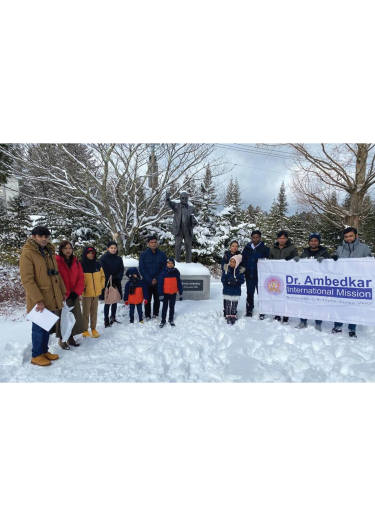Transnational Buddhism and Ambedkarite migration
- Date in the past
- Tuesday, 3. December 2024, 16:15 - 17:45
- SAI, Building 4130, Room 130.00.03
- Jon Keune - Michigan State University / Max Weber Fellow, Erfurt
When the Dalit (so-called “Untouchable”) leader Bhimrao Ambedkar converted with a half-million followers in 1956, he established a new living Buddhist community in central India, where none had existed for many centuries. Ambedkar’s distinctively modern, rationalist vision of Buddhism emphasized its potential to transform society and annihilate caste-based prejudice. Since the 1990s, Ambedkarites have increasingly engaged with East Asian Buddhists, as Japanese and Taiwanese collaborate with them in central India, and as Ambedkarite professionals migrate to other countries for work. When transnational encounters occur, how do interlocutors find solidarity (or not)? How does the prospect of a shared Buddhist identity function in the face of vast cultural, socioeconomic, linguistic, and sectarian differences? What does Buddhism do for Ambedkarites when they live among non-Indian people who have little knowledge of India and caste? Based on ethnographic research in India, Japan, Dubai, Europe, and North America, this presentation explores how Ambedkarites’ visions of Buddhism and social activism are adapting to new diaspora contexts. This event is hosted with the Buddhist Studies Chair, HCTS.

Address
SAI, Building 4130, Room 130.00.03
Event Type
Colloquium